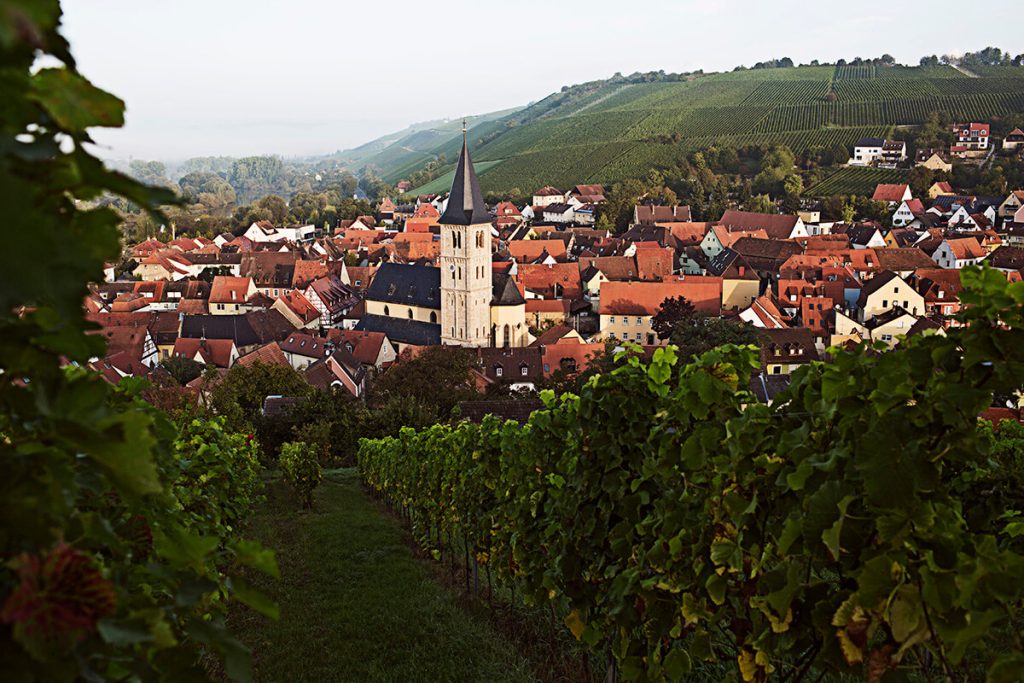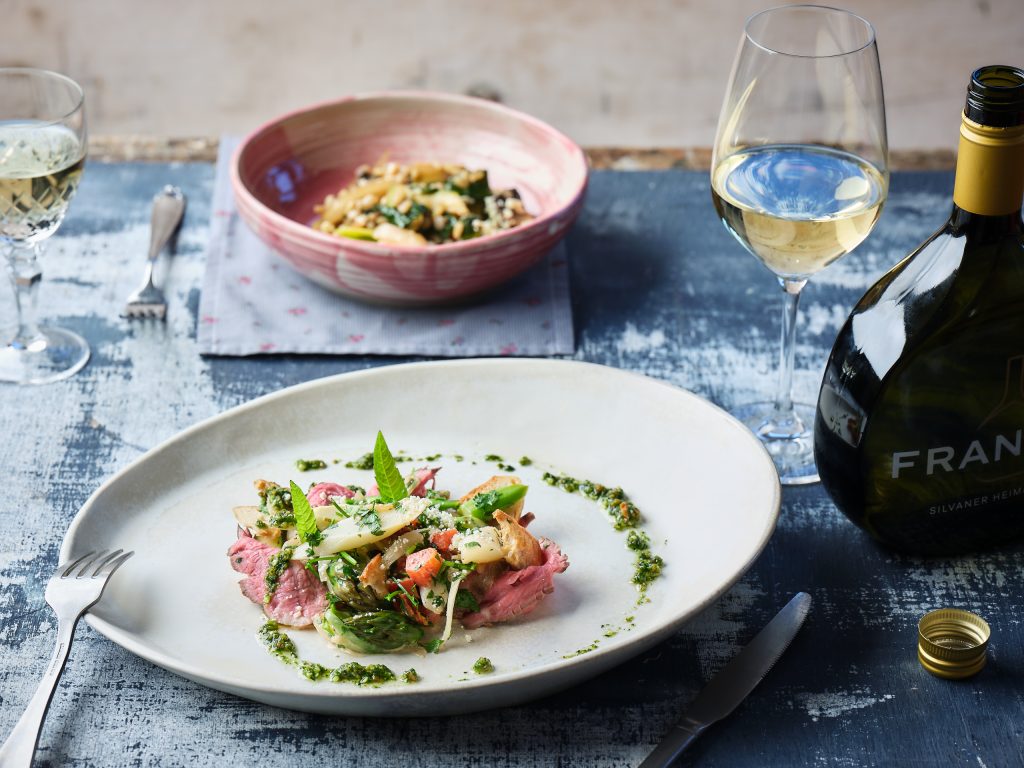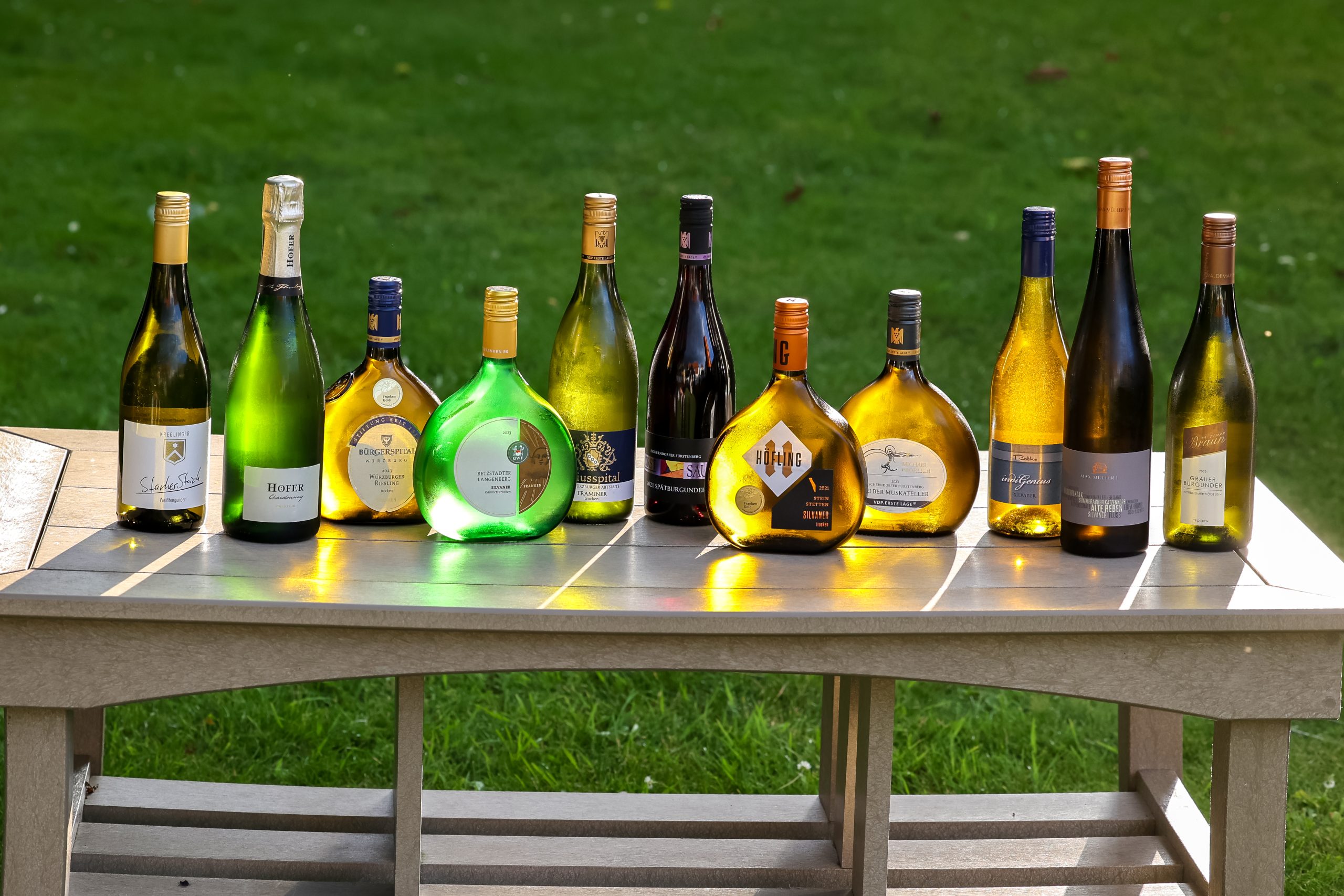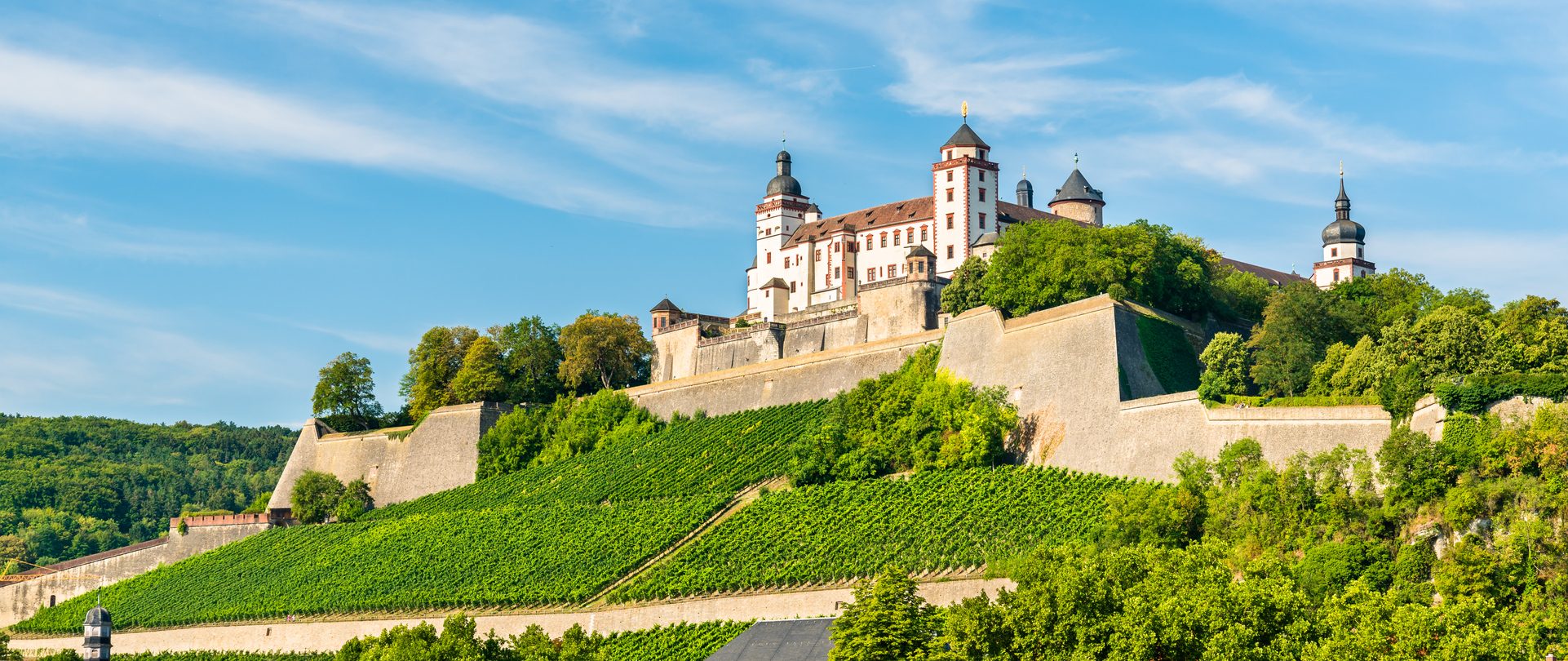Photo credit: Leonid Andronov via iStock
Nestled along the Main River in northern Bavaria, Franken boasts a winemaking history stretching back over a thousand years, with records showing Charlemagne played a role in its early success. For a long time, its limestone and sandstone hills – part of the region’s distinct Triassic soils – remained overshadowed, but there’s a notable resurgence happening now. Vines here dig into three types of rock, creating wines that manage to be both classic in style and strikingly fresh.
Bone-Dry and Rooted in Tradition

Photo credit: DWI
At the heart of Franconian identity is Silvaner, a grape that reaches rare heights here. In most other regions, Silvaner is a quiet supporting act—but in Franken, it’s the headliner. The best examples, particularly from the Stein vineyard in Würzburg or the steep slopes near Escherndorf and Iphofen, are racy and full-bodied with bright herbal tones and a tactile minerality that lingers on the palate. These are not flamboyant wines, but sharp and focused—more savory than fruity, and often showing a cool stoniness.
Beyond Silvaner, there’s a cast of local favorites and cool-climate stalwarts. Müller-Thurgau, once Germany’s workhorse grape, finds new life here when grown on limestone-rich soils, shedding its flabby stereotype in favor of citrus and robust herbal notes. Bacchus, a crossing beloved in the 1970s, delivers fragrant, floral whites with a touch of spice when carefully handled.
Beyond Franken’s famed white wines, Spätburgunder (German Pinot Noir) is on the rise, offering structured, ripe tannins while maintaining freshness thanks to the region’s elevation and nighttime temperature drops. Perhaps most importantly, Franken’s winemakers share a commitment to dryness—almost all wines here are labeled trocken (dry), a stylistic choice that emphasizes transparency and terroir. This approach makes the wines versatile at the table, from sushi to squash to schnitzel, and showcases just how much elegance can be drawn from these soils.
Elegance Meets Edge

Photo credit: Franken Tourismus
The winegrowing region may be best known for the Bocksbeutel, the flattened, bulbous bottle that proudly signals Franconian wine. Once favored by riders on horseback for its easy-to-tote form, it remains an enduring reminder of the region’s confidence in its roots, even as modern touches creep in. Stroll through a college-town hub like Würzburg, and you’ll spot people gathered on old bridges or cycling past steep riverside vineyards—an everyday scene that blends a relaxed way of life with a forward-thinking spirit.
This dichotomy of a fairytale setting blended with modern winemaking and razor-sharp wines is exactly why Franken belongs on any shortlist of Europe’s undervalued finds. There’s still a sense of hush around the region’s identity in the wider world of wine, which means one can enjoy bottles of stellar pedigree at prices that surprise in modesty. And in an era of climatic shifts, Franken’s limestone soils serve as a natural regulator, keeping vines balanced even in atypically hot years. The result is a region uniquely poised for the future while preserving the rich tradition that defines its wines.
Franken Wines Near You

Photo credit: Franken Tourismus
Franken may fly under the radar, but its wines are quietly making their way onto shelves and wine lists across the United States. The bone-dry profile, distinct minerality, and exceptional clarity make Franken wines a go-to for drinkers looking for something crisp, clean, and character-driven.
Look for “Franken” on the label or the iconic Bocksbeutel bottle—it’s usually a good sign you’ve found something special. Here are four options available in the U.S.:
- Weingut Hans Wirsching Estate Scheurebe: This aromatic white wine entices with a fresh bouquet of exotic grapefruit and mango aromas, complemented by a subtle, refreshing acidity, and delivers a light and delightful drinking experience.
- Weingut am Stein Würzburg Silvaner: Expect a dry wine that’s crisp and focused, with herbal aromatics, bright citrus, and a stony, marine-driven minerality that reflects the limestone soils of its origin.
- Leipold ‘Keuper’ Silvaner Kabinett Trocken: This vegan-friendly wine showcases a cool, herbal nose with delicate earthy undertones and bright stone fruit notes. On the palate, it presents juicy, youthful fruit complemented by nutty-yeasty nuances, hints of celery, and subtle yellow spice.
- Rudolf Furst Spätburgunder Tradition: The Spätburgunder “Tradition” from Weingut Rudolf Fürst exemplifies the finesse of German Pinot Noir, offering a harmonious blend of red berries, delicate spice, and a refined structure.
Find an event or tasting near you on our Events page and keep up with the latest in German wine by following Clink Different on Instagram and Facebook.
